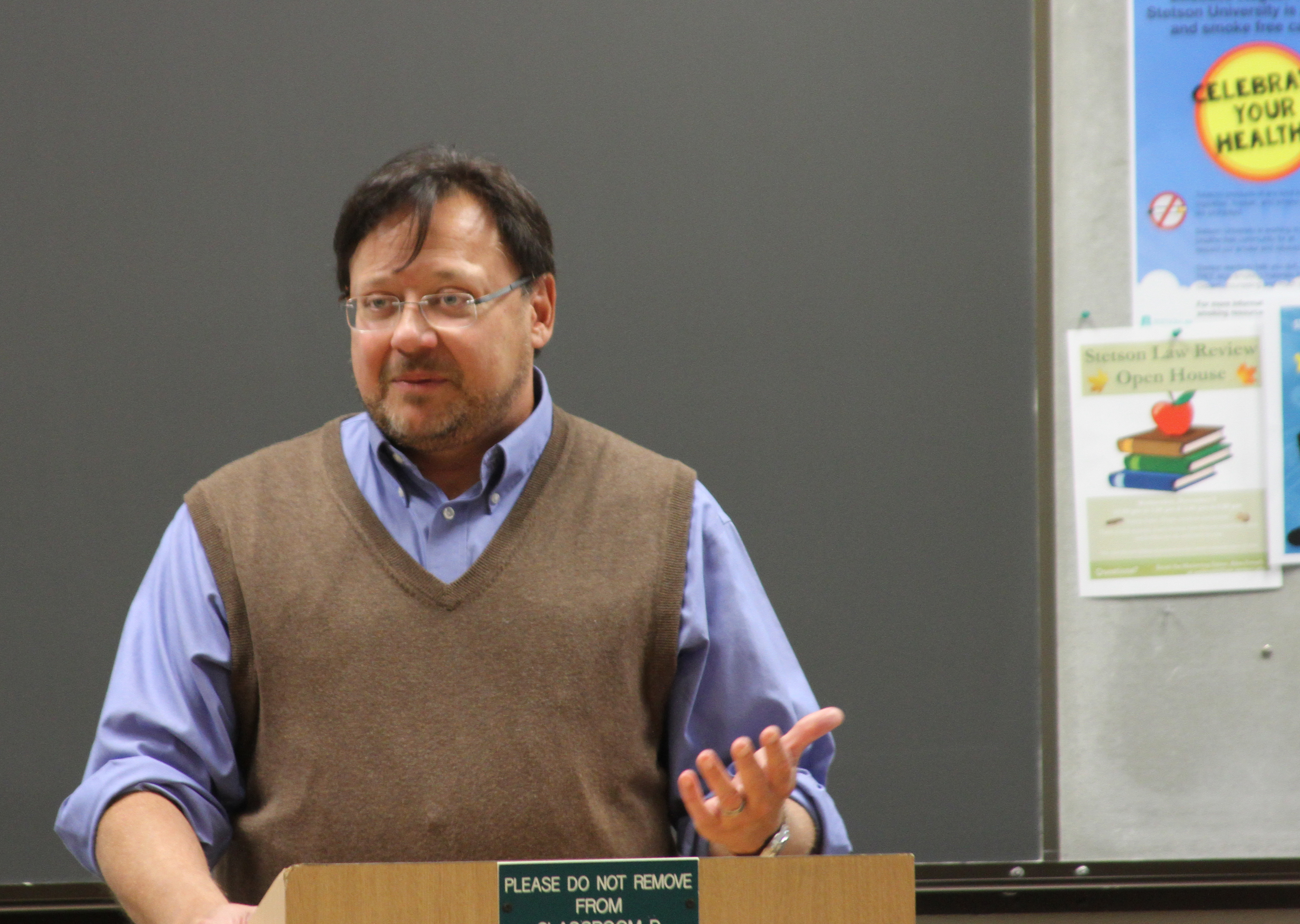By Antonio D Fazzalari
In response to protests at universities across the nation focused on blocking alt-right speakers on campus, USF St. Petersburg will host an open forum concerning the First Amendment, campus protests and free speech.
The Office of Diversity and Inclusion and the Nelson Poynter Memorial Library Diversity Committee invited Peter Lake, professor of law at Stetson College of Law, to head the discussion held on Wednesday in Lynn Pippenger Hall, Auditorium 101, from 4 to 6 p.m.
In an introductory interview, Lake discussed the upcoming forum and freedom of speech on college campuses.
Q: Could you give me a preview of what you’re going to talk about at the forum on the 18th? Are there any specific incidents you are focusing on?
A: Well, I think there have been a lot of incidents that have drawn attention to how to balance the rights of speakers and campuses and students.
It’s a very active time in trying to find the right balance between the rights of various, and sometimes competing, speakers and entities and in all of that, campuses are struggling to do their primary job, which is to educate.
It’s a bit of a challenge to be at the center of a lot of disputes when you’ve got a job to do that is connected to free speech but isn’t necessarily primarily making up the zone for every speaker and every idea.
Q: Why then is freedom of speech such a disputed topic? In theory, everything would fall into place?
A: I think it’s a combination of disputes over time, place and manner. I also think that there’s some speakers and some reactions by listeners that create issues about manageability and the fairness of the events allowing the speakers to go forward or protecting even the audience from violence … It isn’t just the typical run of the mill flash-panel or civilized debate that you might see on topics on peace ban, some of the issues are very incendiary and I think the thing that’s in the background with a lot of them is the potential for violence and intolerance of others.
Q: How do you think the schools should address the issue?
A: I think it’s actually somewhat situational to the type of school. . . I think what (University of California) Berkeley would do would probably differ a little bit from say USF St. Pete. Some of the basic rules are the same, but the way they play out in a physical and virtual environment is really quite different.
I think it takes some time and planning to think about what type of campus environment you want to have, what kind of resources you have, what spaces and places are available, and who is going to be attracted to come to your campus to speak. It depends on how you create a vibrant marketplace of ideas without it turning into a melee in an unmanageable circumstance.
Q: What do you want students to take away from the forum?
A: The main message that I convey to just about everyone is ‘use it or lose it’ and that means go to the First Amendment gym and exercise your First Amendment muscles. To make the First Amendment real, you have to work with it and work at it. It’s not something that just comes to you passively.
You’ve got to be very intentional about what it is that you want to have taken place and you’ve got to be very careful about how you articulate what your intention is and get that out to the world … Years ago when America was in a very difficult period, the 1960s, I remember (politician) Bobby Kennedy speaking and saying that the cure of the mindless menace of violence is education and compassion.
I think that we have to use our educational power and, strangely enough in an age where everyone wants to speak, I think one of the most important education lessons is to learn how to listen and to be quiet. To hear others and to listen.
Header photo courtesy of Stetson



